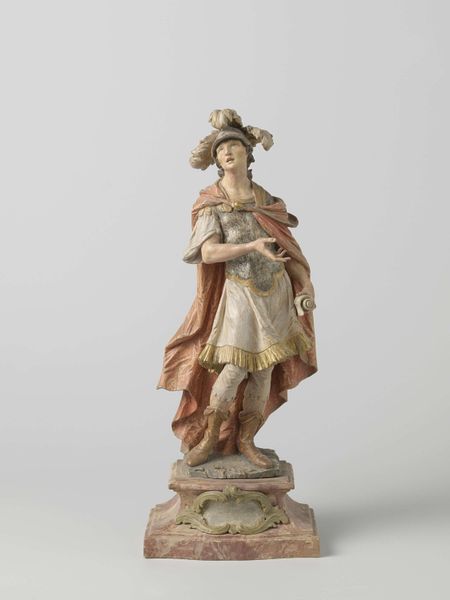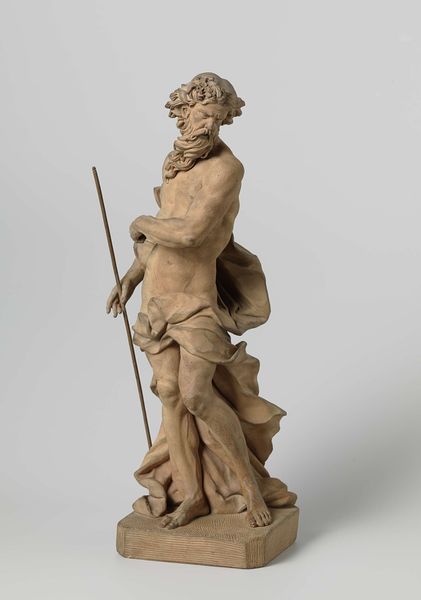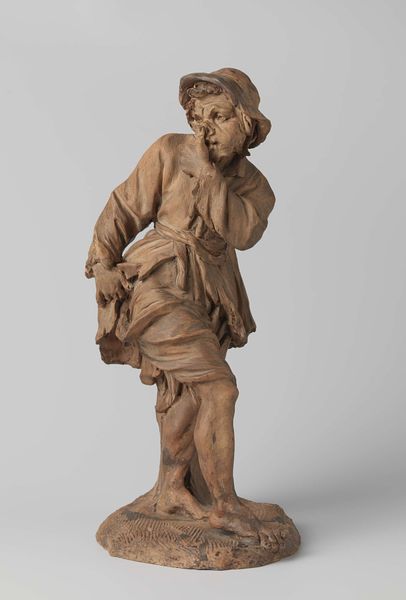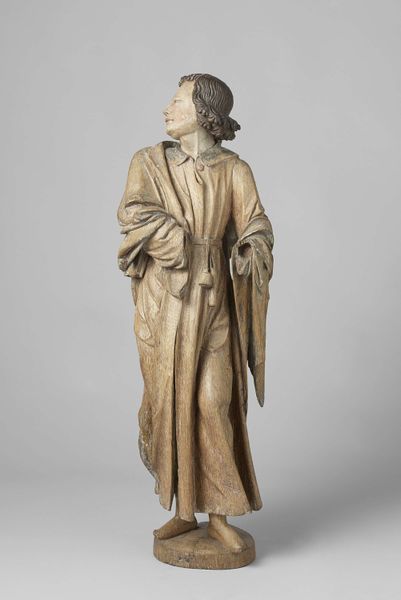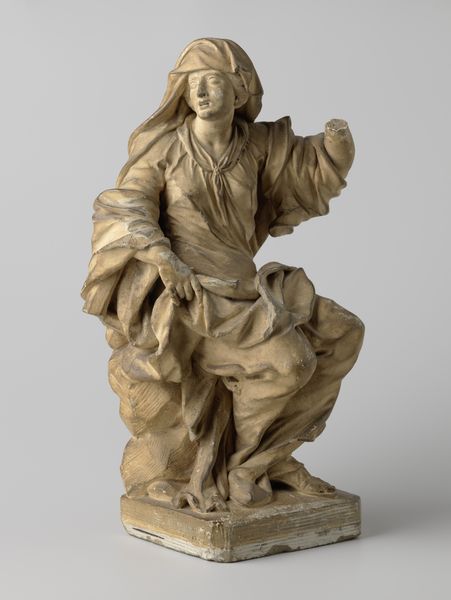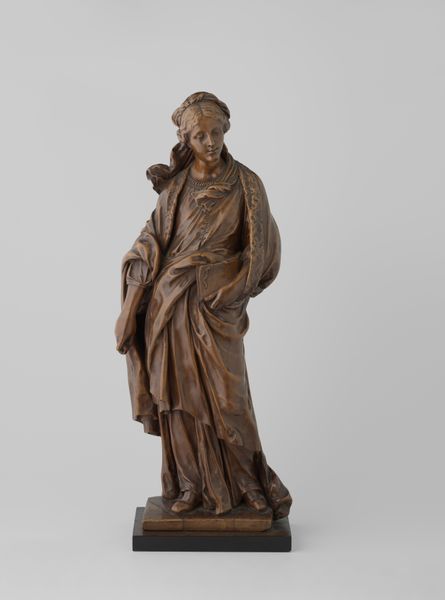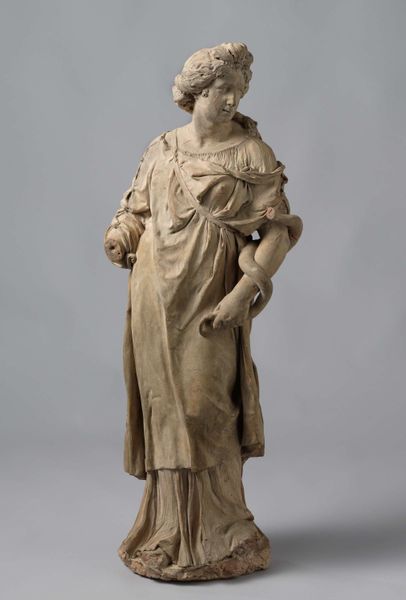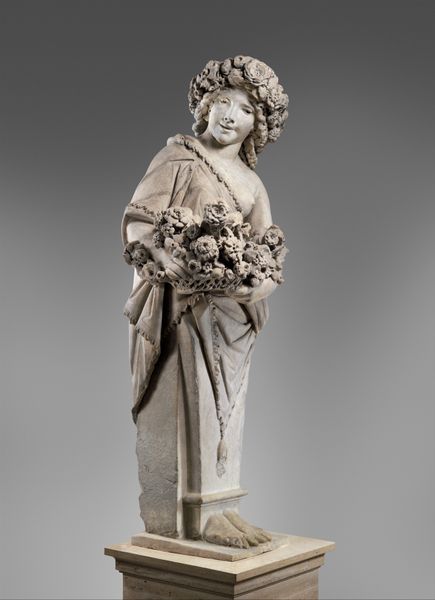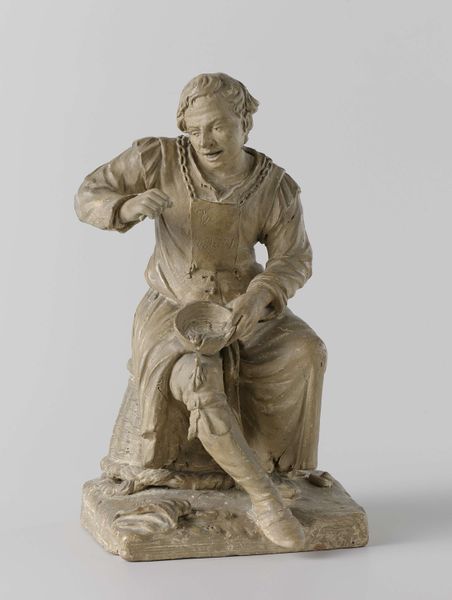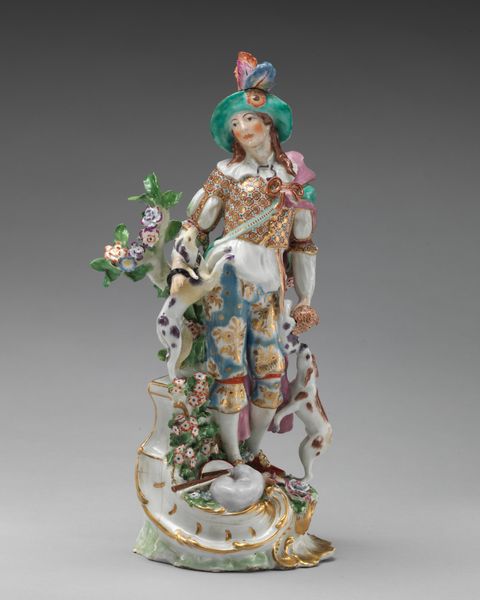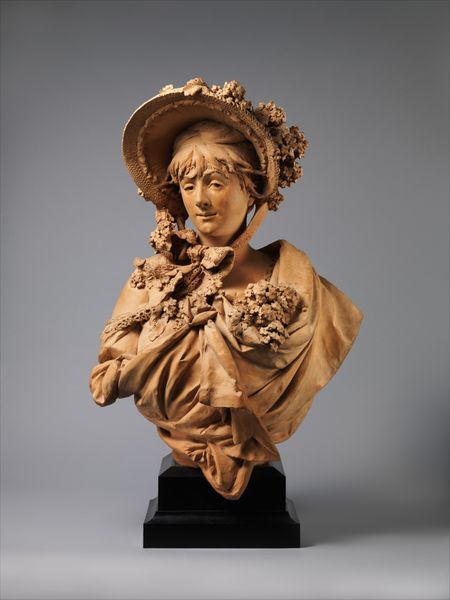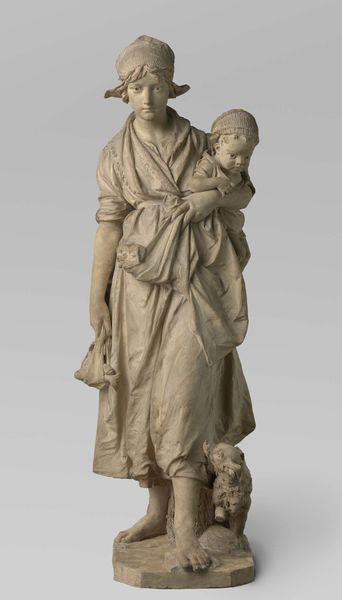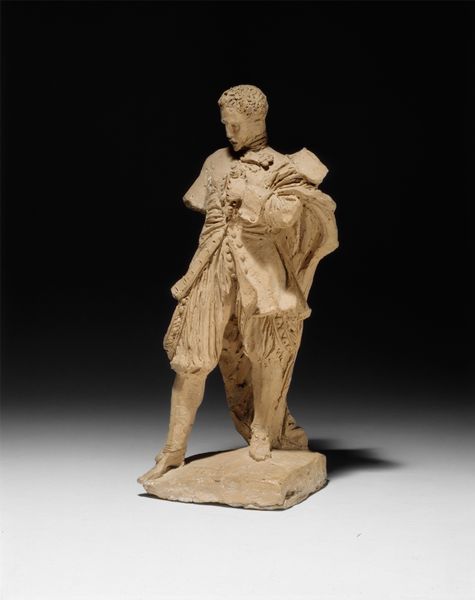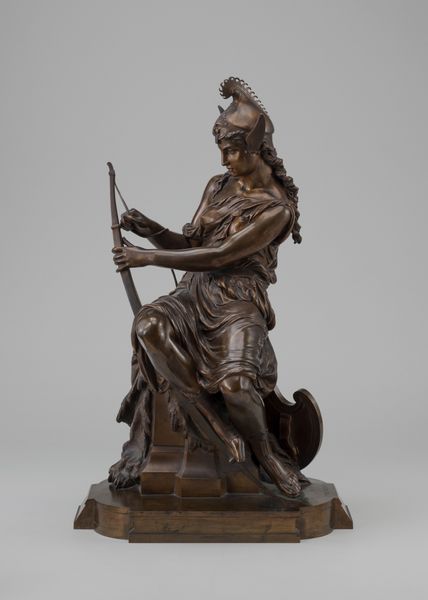
sculpture, wood
#
sculpture
#
figuration
#
sculpture
#
wood
#
history-painting
#
rococo
#
statue
Dimensions: height 41.5 cm, width 17 cm, depth 10.5 cm
Copyright: Rijks Museum: Open Domain
Editor: So, this intriguing piece is entitled "Heiligenfiguur in pseudo-Romeins soldatenkostuum," a wooden sculpture by Ignaz Günther, dating back to around 1765-1770. What first strikes me is the almost theatrical quality – like a baroque figurine about to burst into song! What's your take on it? Curator: Theatrics, indeed! It's a fascinating example of Rococo religious art. Look at how Günther, with such flair, is using wood to create something both devotional and decorative. The figure, a saint in (slightly comedic) Roman garb, reflects a time when the church embraced drama to inspire awe. But it also mirrors a broader aristocratic enthusiasm for costumery. Do you notice how the folds in his cloak seem to dance? Editor: Absolutely! The flowing lines and gilded details do give it movement, but also a certain…lightness? Almost as if it’s trying not to take itself too seriously. Curator: Exactly! The Rococo period reveled in this playful approach. Though ostensibly a religious object, the artist also winks at worldly opulence and splendor. Can you imagine this placed in a private chapel alongside shimmering silks and silver candlesticks? A total feast for the eyes. Editor: So, it’s devotional, but with a knowing smile? A fusion of faith and fancy? Curator: Precisely. And the remarkable craftmanship turns simple wood into a vibrant expression of 18th-century sensibility. It is something that manages to be both reverent and ravishing. Editor: I never thought of religious sculpture as 'ravishing' before, but I see what you mean. Thanks; that gives me a lot to consider! Curator: My pleasure. Sometimes, the most profound statements come in the prettiest packages!
Comments
No comments
Be the first to comment and join the conversation on the ultimate creative platform.
